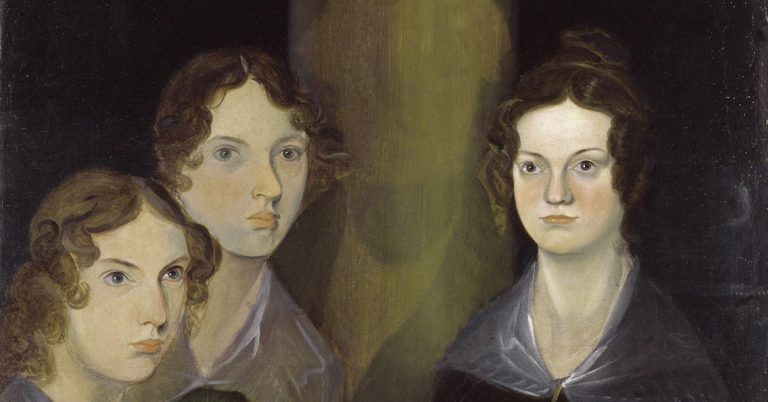

In August, protestors in Hong Kong joined hands to form The Hong Kong Way, a 30-mile human chain that stretched across both sides of the city’s harbour. Their repertoire included “Do You Hear the People Sing?” from Claude-Michel Schönberg’s, Alain Boublil’s, Jean-Marc Natel’s, and Herbert Kretzmer’s musical Les Misérables (1980; English version 1985). CBC News documented some of this material in “Hong Kong Protesters Form Human Chain”. The people’s anthem has been performed widely, moving its English-language lyricist Kretzmer to reflect on his song and its legacy earlier this summer.
Protestors follow the example of many in drawing strength from this musical number “Alla Marcia, grandioso.” Stacy E. Wolf, Professor of Theatre at Princeton University and author of Changed for Good: A Feminist History of the Broadway Musical, observes, “The anthem is melodically catchy and the lyrics inspiring and easy to sing. The protesters repeat the chorus, which is a typical musical theatre chorus.” David Bellos, the Meredith Howland Pyne Professor of French and Comparative Literature at Princeton and author of The Novel of the Century: The Extraordinary Adventure of Les Misérables, directs our attention to Hugo’s 1862 novel, the musical’s source material: “Les Misérables is one of the most powerful appeals for fairness and decency ever put into fictional form. I think the Hong Kong protesters, singing a song from its musical version, are invoking the great distinction between justice and law that lies at the heart of Hugo’s work.”
Formally organized into five parts—Fantine, Cosette, Marius, The Rue Plumet Idyll and the Rue St-Denis Epic, and Jean Valjean—Les Misérables is structured around instances of injustices and the novel demonstrates how exposure to them can radically change our worldviews. Consider Marius’ meeting with Éponine, a scene not found in the musical. One foggy evening, Éponine and her sister bump into their neighbour Marius, and in their haste, they leave behind a package of letters. Ostensibly by four individuals—a Royalist refugee, an abandoned wife with six children, a poet in search for a patron, and an actor who had fallen on hard times—the letters, Marius quickly surmises, are from the same hand: None of them carry addresses; their writing, on yellowed paper reeking of tobacco, is identical; and poor spelling is a recurring feature.
When Éponine delivers to Marius a begging letter shortly thereafter, he is taken aback by her appearance and deeply troubled by the dangers to which her father exposes her in his attempts to exploit the charity of the compassionate. Hugo registers the damage wrought on Éponine, who, along with her sister, has become “some sort of monster, at once foul and innocent, created by penury”: “Nothing was more dismal than the sight of her cavorting and, as it were, flitting about the room like a bird frightened by daylight or afflicted with a broken wing. You felt that under other circumstances, had she been brought up to lead a different life, the playful and uninhibited behaviour of this young girl might have been something sweet and charming.”
Christine Donougher’s translation, for Penguin Classics, expertly captures Hugo’s nuances. The conditionals—“under different circumstances,” “had she been brought up,” “might have been”—reveal the shifts in Marius’ contemplations and it follows that this encounter moves him into re-evaluating his senses of citizenship and social responsibility. In his daydreaming and his romantic preoccupations, Marius suspects that he has forsaken his neighbours and inadvertently contributed to their miseries: “Every moment of every day he could hear them through the wall, moving about, coming and going, talking, and he paid no attention! And in those words were groans, and he did not even listen. His mind was elsewhere, in dreams, impossible joys, fantasies of love, wild conceits. And meanwhile other human beings, his brothers in Jesus Christ, his brothers in the people, agonized beside him, agonized in vain!”
Hugo reveals how proximity does not imply connection; and it behoves Marius figuratively and literally to look over the thin wall that separates him from the Jondrettes (a.k.a. the Thénardiers). We do well to attend to the ethical questions that the novel poses: “They seemed very depraved, very corrupt, very debased—heinous, even—but rare are those who fall without sinking into vice. In any case, there is a point where the poor and the wicked become mixed up and lumped together in the one fateful word: les misérables—the wretched. Whose fault is this? And besides, should not charity be all the greater, the further into the depths the fall?” In this key passage, Hugo offers a then provocative redefinition of the term misérables. Marius’ meeting contributes both to his growth and to the novel’s theme. Les Misérables is punctuated with such momentous encounters and personal negotiations.
Song is ideally suited to crystalizing and invoking such tensions. As Wolf says, “Songs have always been used for protest but a song extracted from a musical carries that musical’s stories, associations, and meanings with it. In this case, the story of Les Misérables aligns well with the Hong Kong protestors’ message and functions as a tool or equipment for living. The musical condenses, intensifies, and amplifies the emotions presented in the novel, which is what performance, especially musical theatre, can do.” The hashtag #DoYouHearthePeopleSing has become identified on Twitter with the protests, and Émile Bayard’s iconic image of Cosette (figure 1) has been adapted to wear an eye-patch as a tribute to a young woman whose eye was badly injured. Hugo routinely stresses how individual acts of kindness are foundational to social change, and how moral improvement must pre-exist social improvement. It is no wonder that this great nineteenth-century novel seems so current.
About The Author
Tom Ue researches and teaches courses on nineteenth-century British literature, intellectual history, and cultural studies at Dalhousie University. He is the author of Gissing, Shakespeare, and the Life of Writing (Edinburgh University Press, forthcoming) and George Gissing (Liverpool University Press, forthcoming), and the editor of George Gissing, The Private Papers of Henry Ryecroft (Edinburgh University Press, forthcoming). Ue has held the prestigious Frederick Banting Postdoctoral Fellowship and he is an Honorary Research Associate at University College London.




